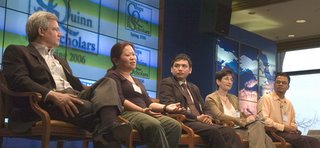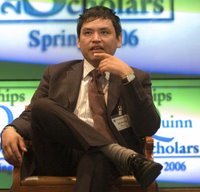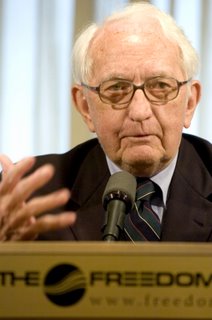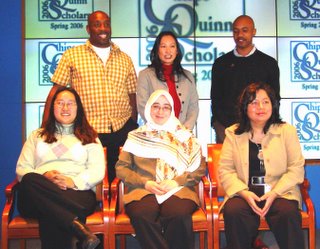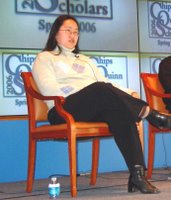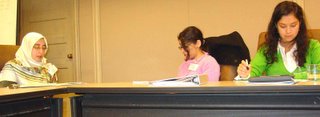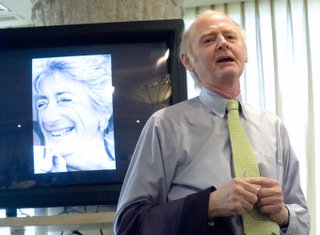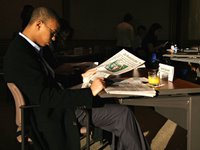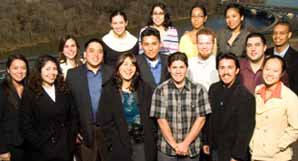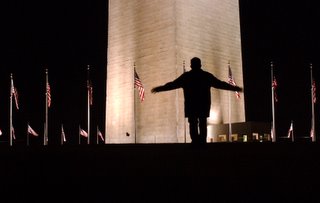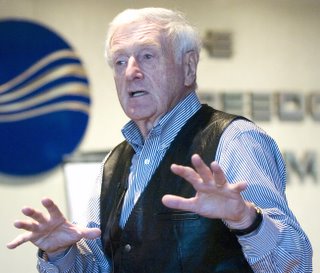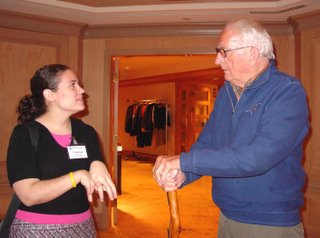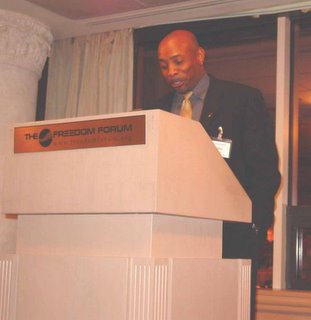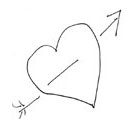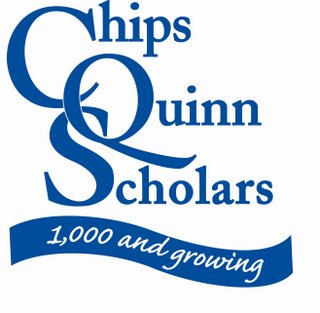Giving thanks
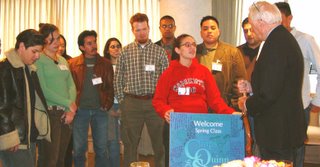 (Members of the Spring '06 Chips Quinn Scholars class present John Quinn with a signed poster, thanking him for the opportunity. "Thanks for the wisdom," wrote Benny Polacca. "I've never thought I could feel so close to someone who's not in my family," wrote David Lipscomb. "I'll be forever grateful," wrote Ana Ramirez. Photo by Michelle Hedenskoog.)
(Members of the Spring '06 Chips Quinn Scholars class present John Quinn with a signed poster, thanking him for the opportunity. "Thanks for the wisdom," wrote Benny Polacca. "I've never thought I could feel so close to someone who's not in my family," wrote David Lipscomb. "I'll be forever grateful," wrote Ana Ramirez. Photo by Michelle Hedenskoog.)One of the most helpful panel discussions was "talking to your editors/peers." It was interesting that experienced reporters were willing to share their most intimate moments on the job. I'm thankful that this Chips Quinn experience has led me to people who have become my extended family and thankful to learn the skills necessary to succeed in my career.
